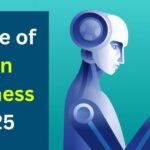Smart contracts revolutionized the blockchain ecosystem by enabling automated, trustless transactions without intermediaries. But as industries demand more flexibility, scalability, and integration, a new wave of innovation is emerging—Smart Contracts 2.0. These next-generation smart contracts promise to overcome the limitations of their predecessors and open the door to more advanced decentralized applications (dApps), enterprise solutions, and real-world blockchain use cases.
What Are Smart Contracts 2.0?
Smart Contracts 2.0 refer to enhanced, more sophisticated versions of traditional smart contracts, integrating features such as:
-
Interoperability across blockchains
-
Advanced logic and programmability
-
Built-in governance models
-
Dynamic updates and modularity
-
Integration with AI and off-chain data (oracles)
Unlike the first generation, which was often limited to basic conditions like “if this, then that,” Smart Contracts 2.0 aim to offer greater flexibility and broader application potential in sectors like finance, healthcare, gaming, and supply chain management.
Key Features of Smart Contracts 2.0
1. Cross-Chain Interoperability
The future of blockchain is multi-chain. Smart Contracts 2.0 are designed to function across various blockchain networks, enabling seamless communication and transactions between Ethereum, Polkadot, Cosmos, Solana, and more. This reduces siloed operations and increases the utility of decentralized applications.
2. AI-Powered Decision Making
Integration with artificial intelligence allows smart contracts to make data-driven decisions. For example, insurance contracts can analyze weather data in real-time before triggering automatic payouts, enhancing both accuracy and fairness.
3. Modularity and Upgradability
Unlike traditional smart contracts that are immutable once deployed, Smart Contracts 2.0 introduce modular architecture. This allows developers to upgrade specific contract components without compromising the entire system or needing costly redeployments.
4. Enhanced Security and Governance
Built-in governance frameworks allow token holders or predefined stakeholders to propose and vote on changes, providing decentralized control and reducing the risk of vulnerabilities or malicious exploitation.
5. Oracle Integration
Oracles bring off-chain data onto the blockchain, which is critical for use cases involving external triggers. With native oracle compatibility, Smart Contracts 2.0 are more versatile and capable of real-world applications like decentralized finance (DeFi), logistics, and real estate.
Real-World Applications of Smart Contracts 2.0
● Decentralized Finance (DeFi)
Smart Contracts 2.0 can offer more secure and efficient yield farming, lending protocols, and asset management strategies by dynamically adapting to market conditions.
● Healthcare
Patient records, consent management, and insurance claims can all be handled more efficiently with self-executing smart contracts that integrate real-time health data securely.
● Gaming and NFTs
Games can deploy advanced smart contracts for in-game economies, NFTs, and player governance systems, offering true asset ownership and decentralized content creation.
● Supply Chain Management
Automated contract execution across multiple stakeholders ensures transparent tracking, authentication, and dispute resolution.
Challenges and Considerations
Despite the promise, Smart Contracts 2.0 face hurdles such as:
-
Complexity in development
-
Regulatory uncertainty
-
Scalability limitations on some blockchains
-
Dependence on reliable oracles and off-chain data sources
However, ongoing innovations in layer-2 scaling solutions, zero-knowledge proofs, and decentralized oracle networks like Chainlink are rapidly addressing these concerns.
How Smart Contracts 2.0 Improve User Experience
Next-generation smart contracts focus not just on performance but also on user-centric design. Features like better wallet integrations, gas-fee optimizations, and more intuitive interfaces are making decentralized apps more accessible to everyday users. This shift is key to mainstream blockchain adoption.
Smart Contracts 2.0 vs Traditional Smart Contracts
While both serve as self-executing digital agreements, Smart Contracts 2.0 offer:
| Feature | Traditional Smart Contracts | Smart Contracts 2.0 |
|---|---|---|
| Interoperability | Limited | Multi-chain support |
| Upgradability | None or complex | Modular updates |
| AI Integration | Absent | Built-in AI compatibility |
| Governance | External or manual | Native on-chain governance |
| Oracle Support | Add-on via 3rd party | Deep integration |
This evolution brings blockchain closer to enterprise-level functionality.
Leading Platforms Developing Smart Contracts 2.0
Several blockchain platforms are at the forefront of this evolution:
-
Ethereum 2.0 & Layer 2 solutions: Enhancing scalability and modularity.
-
Polkadot & Cosmos: Pioneering interoperability between chains.
-
Avalanche & Cardano: Focusing on smart contract performance and flexibility.
-
Chainlink: Powering reliable, decentralized oracle networks.
These platforms are not just supporting innovation—they’re setting new standards for what smart contracts can achieve.
Challenges and Considerations
Despite the promise, Smart Contracts 2.0 face hurdles such as:
-
Complexity in development
-
Regulatory uncertainty
-
Scalability limitations on some blockchains
-
Dependence on reliable oracles and off-chain data sources
The Road Ahead
Smart Contracts 2.0 represent a critical milestone in the maturation of blockchain technology. As they become more robust, user-friendly, and adaptable, we can expect broader adoption across industries and more intricate decentralized ecosystems.
Conclusion
The blockchain revolution is far from over—in fact, it’s just beginning a new chapter. Smart Contracts 2.0 are redefining what’s possible with automation, trust, and decentralization. As we continue into a world where digital and physical systems increasingly converge, the evolution of smart contracts will be central to creating transparent, efficient, and equitable systems.
- Smart Contracts 2.0: The Next Evolution in Blockchain Technology
- The blockchain revolution is far from over—in fact, it’s just beginning a new chapter. Smart Contracts 2.0 are redefining what's possible with automation, trust, and decentralization
- Smart Contracts 2.0, Next-generation smart contracts Blockchain evolution Interoperable smart contracts AI and smart contracts Future of blockchain technology Decentralized applications (dApps) Blockchain interoperability Smart contract use cases
Related posts:
 Can Generative AI Truly Replace Human Creativity in the Future?
Can Generative AI Truly Replace Human Creativity in the Future?
 Blurring Boundaries: How AI is Reshaping the Future of Digital Art?
Blurring Boundaries: How AI is Reshaping the Future of Digital Art?
 Exploring Coderway.net: A Modern Gateway to AI-Powered Image Creation
Exploring Coderway.net: A Modern Gateway to AI-Powered Image Creation
 The Future of AI in Business: Predictions for 2025 and Beyond
The Future of AI in Business: Predictions for 2025 and Beyond
 Understanding AI Inference as a Service: How It Powers Smart Applications
Understanding AI Inference as a Service: How It Powers Smart Applications
 The Role of AI Model Libraries and Vector Databases in Modern AI Deployment
The Role of AI Model Libraries and Vector Databases in Modern AI Deployment
 Hire Artificial Intelligence Developers for 10x Faster Project Delivery Now!
Hire Artificial Intelligence Developers for 10x Faster Project Delivery Now!
 Revolutionizing App Development in Dubai with AI-Powered Custom Solutions
Revolutionizing App Development in Dubai with AI-Powered Custom Solutions







